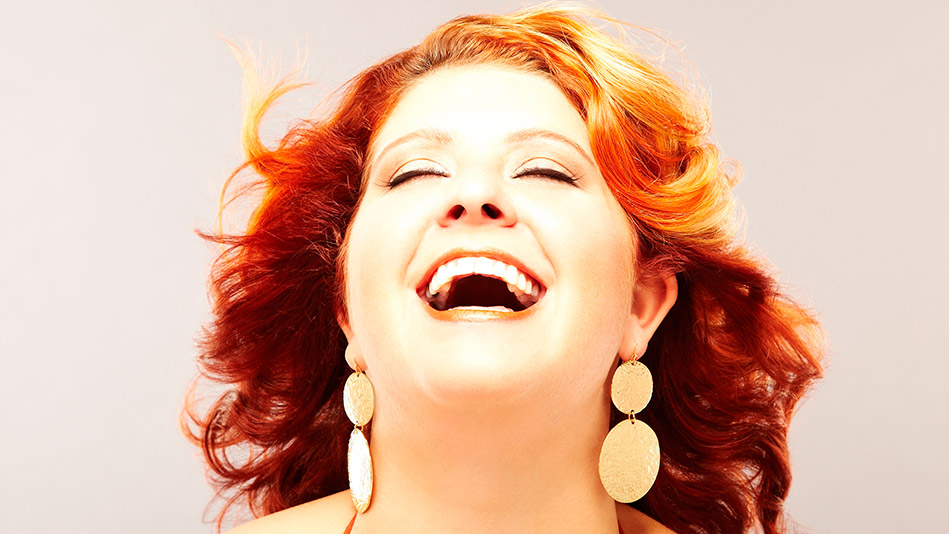The Fat Lady Sings

Photo: Charlotte Jenks Lewis/Studio D
Fat people are supposed to fight fat. Natalie Kusz has been fighting since she was 9. Here, shockingly, she explains why she's breaking all the rules, thumbing her nose at the beauty culture...and giving up.
Not much is delightful—I'm the first to admit it—about being fat: The joints ache and the lungs wheeze in mere anticipation of a staircase; any temperature above zero calls for extreme nudity and intravenous ice water; clothes-shopping preparations include a motivational speaker and prescription narcotics; and the act of picking up, say, a dropped quarter is something to be accomplished with only the toes, lest bending the prominent midriff result in toppling, concussion, and death.Moreover, a fat person is a pariah, subject to the kinds of vitriol once reserved for 17th-century witches. My sister, who is a supersize chick like myself, has had food hurled at her from passing cars (with accompanying size-related slurs) in two of these United States when she was out for healthy strolls; both she and I, idling our cars at traffic lights, have had drivers alongside us shout helpfully, "Get out and walk, fat-ass!" (and then what, they'll throw cheeseburgers?); and grocery cashiers have repeatedly—I kid you not—held up our purchases and speculated, "I guess you didn't notice the low-calorie version," or something similar. These are not infrequent incidents; some sort of confrontation, subtle or overt, occurs every time I leave my house, unless I am accompanied by a thin person (whose presence seems to discourage unseemliness, I assume, because Smalls don't like other Smalls to see them behaving badly).
So, no, there is not much of an upside to being fat.
Can someone explain, then, why the general populace believes that if enough people alert the fat lady (oh so sympathetically) to the downside of her heftiness, she will come to her senses, see the error of her ways, and make haste to phone Jenny Craig? On how many occasions must I, sitting in a friend's living room—believing myself protected, for once, from assault—have that friend lean toward me, lay a narrow hand on my arm, and murmur, "I hope this doesn't hurt your feelings, but I love you and I'm concerned about your weight."
Imagine, if you will what a fat lady feels at this moment. The fact that she is in this living room at all, that she calls this person friend, means this person has aced specific tests, has indicated over time that he or she is disinclined to criticize and is more benevolent than the world at large; for the fat lady, like all circus freaks, has much to fear among regular folk, and is cautious about relaxing among them. Imagine how, having relaxed, she feels to find out she was wrong, that all along she was misreading the signs, that her body was, in fact, being judged. Like the woman with an unfaithful lover, she must review every past visit, every reckless and liberated moment, wondering which of them was true and which false.
Let me be perfectly clear: The friend's supportive admonition may be meant less caustically, but it does not feel less caustic than the aforementioned "Get out and walk, fat-ass" incident. True, the friend, like the family doctor, isn't talking about my ugliness, but rather about how likely I am to die young. Even so: How preferable to be shunned than exhorted; for upon hearing "Fat-ass!" I can flee the scene and anticipate never again meeting the heckler this side of Hades, while a friend's kindly advice is the start, not the end, of tortures—a thousand future opportunities to pretend to overlook my benefactor's earnest and affectionate disapproval, clenching my abs and tucking in my chins, imagining myself petite and palatable and elsewhere.
"Is it likely that in 38 years of living I have never once noticed my own corpulence?"



